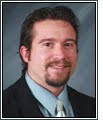Sunday, April 4, 2010
Checklist for Marketing Your Elder Law Practice
Basic Components of a Marketing Plan
□ Firm Website: Have you recently established a brand new law elder law firm? A handsome, professional-looking website is every bit as vital today as a telephone listing. Enlist the services of a website designer with vast experience in creating websites for lawyers.
□ Advertising: While most practitioners report mixed success with TV and radio advertising (which can be pricey, too), the use of traditional:
(1) Yellow Pages (both print and online) is highly recommended.
(2) Weekly church and synagogue “bulletins” – those fliers distributed at weekly religious services loaded with congregational news and ads from local businesses.
(3) Local community papers – typical they come out weekly and ad space is pretty cheap.
(4) Remember: advertising is successful only if it is sustained, repetitive and consistent over time.
□ Lawyers.com: A free website designed for non-lawyers to help them locate attorneys in their locality who specialize in a host of practice areas, Lawyers.com reached its 2 millionth visitor in 2009.
□ Community Seminars: There is no substitute for visibility in one's community. With the exception of America’s smallest towns, just about every municipality has one or more social organization(s) catering to senior citizens, with names like the “Golden Agers”. In mid-sized or larger towns, the municipal government likely has a senior center where weekly meetings are held, or at least a city agency dedicated to the needs of seniors. Get in touch with them and find out about these meetings:
o Get yourself invited to a meeting.
o Important: Tell the club’s president that you’ll be supplying free refreshments for the meeting – platters of cookies or boxes of donuts, plus coffee, tea and soft drinks.
o Offer a special 15% discount to those who mention this meeting when they visit your office.
o Note: In recent years, speaking before such groups has become an increasingly competitive activity, with some national organizations even providing model advertisements, scripted seminars and pre-packaged documents so that any attorney can be an instant "elder law expert."
o Finally, a sustained schedule of community seminars is essential if success is to be achieved. So, be aggressive: at least once each month, schedule an appearance in a different town or community.
□ Informational Handouts: On topics such as Medicaid and asset preservation, revocable trusts, durable powers of attorney, estate tax planning, etc., these handouts are a low-cost investment with potentially significant returns. Pass them out at the community seminars (above). Also, attach them to your website in a PDF or Word document.
□ Firm Newsletter: Maintaining contact with your client community is necessary if referrals and return business are expected. Desktop publishing software allows any office to publish a presentable, professional-looking newsletter. Practitioners are urged to author their own newsletter in their own style, rather than rely on generic articles from national publishers. A state-specific and more local focus is essential. Again remember to post this newsletter to your firm’s website so that non-clients who visit may access the newsletters for free.
□ Offer to Author Articles: Most professional publications are in need of high-quality, well-researched articles. Do not hesitate to contact such journals and offer to author articles. When done, make multiple reprints for distribution to existing and professional clients, as well as referral sources.
□ Submit Short Articles or Blog Entries to Leading Websites: For example, this website, The Estate Practice & Elder Law Center, gladly accepts blog entries and even full-blown articles from lawyers, certified estate planners and investment advisors and similar professionals. There are two blogs – one on “Estate Planning & Probate” and another on “Elder Law”. In August alone, this website drew 2,594 separate visits. For those wishing to submit blog entries or articles, just email them to Raymond.p.camiscioli@lexisnexis.com
□ Use of Audio- or Videotapes: Some practitioners make audio- or videotapes for free distribution to existing and potential clients. Again, these can be incorporated into the firm’s website, too. The success of such marketing tools will depend on the ability of the practitioner to convey information in an understandable, comfortable manner. Not all practitioners are blessed with this ability.
□ Establish Referral Sources: There are many professionals who need attorneys to whom they can refer clients. These include accountants, geriatric care managers, social workers, and professionals in hospitals and other medical institutions, and insurance professionals. Let’s face it: the establishment of such a referral network will consume years of relationship-building efforts and cannot be rushed.
□ Reward Referral Sources: Every referral should be acknowledged. While words (a telephone call, an e-mail, a letter) are adequate, consider tangible rewards such as chocolate, flowers, a gift basket or gift certificate. Referral fees may be appropriate, taking care to comply with applicable rules and limitations.
□ Offer Free Visits to Home, Hospital, Nursing Home and Similar Facilities: Physicians abhor home visits, and older patients long for the "good old days" when one's doctor made house calls. Offering home, hospital and nursing home visits will both attract business and present the proper image of an elder law attorney who cares about his clients as human beings. Merely offering such services, in other words, can be remarkably helpful in building a successful practice.
□ Become Involved with Professional and Community Organizations. Serving as chair, vice-chair or a member of the elder law committee of the state bar association, or on the board of directors of a non-profit organization serving the elderly, creates the opportunity to educate the professional legal community or the local “lay” community about a practitioner's areas of expertise. As important, it is a means of "giving back'' to a community. Examples include the local Alzheimer's Association and organizations that address the needs of disabled adults.





